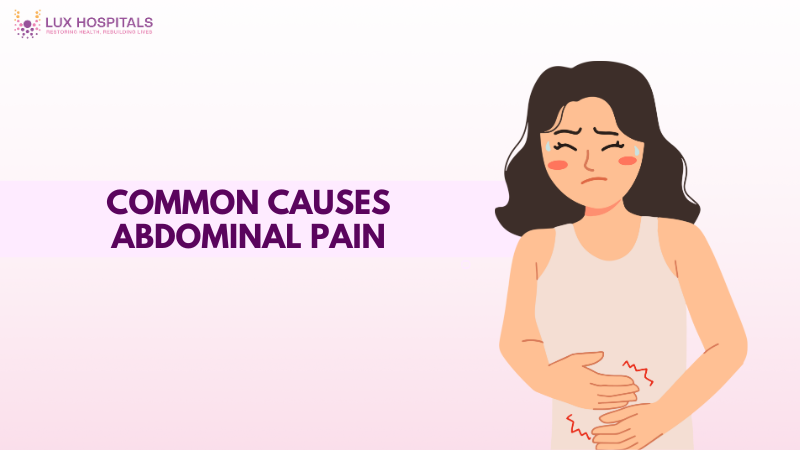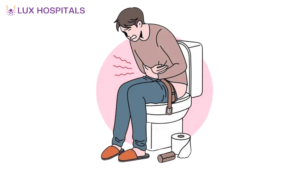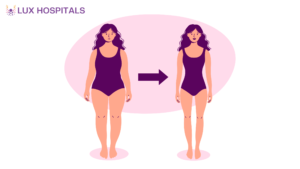What Does Your Abdominal Pain Mean? Common Causes Explained

Among the most common causes is abdominal pain. People visit doctors or emergency rooms. It can cause anything from minor pain to serious cramps and may signal anything from indigestion to life-threatening conditions. Recognizing the potential reasons behind stomach pain is key to knowing when to rest, seek treatment, or head to the hospital.
This article examines the typical causes of stomach pain, assisting you in recognizing trends, signs, and warning signs.
Top 10 Causes of Abdominal Pain
Abdominal pain can stem from a variety of conditions, ranging from minor digestive issues to serious medical emergencies. Knowing the most typical reasons enables you to pinpoint the source of your discomfort and determine when to get medical attention. To assist you in better understanding the top ten causes of stomach pain, we’ve included information on their
Symptoms, Triggers and Potential Remedies.
1. Indigestion and Gas
Indigestion often causes upper abdominal pain, bloating, and discomfort after eating. This occurs when the stomach has trouble breaking down food, which causes pressure and gas to build up. Stress, spicy foods, and overeating are triggers.
Symptoms:
- Bloating and burping
- Burning sensation
- Mild cramping in the upper abdomen
Solution: Lifestyle changes, antacids, and eating smaller meals can reduce symptoms.
2. Constipation
Lower abdominal pain and difficult or infrequent bowel movements are signs of constipation. It puts pressure on the colon and rectum, which may cause cramps or a fullness sensation. Common causes include a lack of hydration, fiber, and physical activity.
- Hard or dry stools
- Feeling bloated
- Pain that improves after a bowel movement
Solution: Increase fiber intake, hydrate well, and stay active.
3. Irritable Bowel Syndrome (IBS)
IBS is a chronic condition that causes abdominal pain, especially in the lower abdomen, along with alternating constipation and diarrhea. Stress and certain foods can worsen symptoms. It’s more common in women and younger adults.
Symptoms:
- Cramping relieved by bowel movements
- Gas and bloating
- Changes in stool consistency or frequency
Solution: Dietary changes (like low FODMAP), stress management, and medications help manage symptoms.
4. Gastroenteritis (Stomach Infection)
Gastroenteritis, sometimes known as the stomach flu, causes sudden abdominal pain, vomiting, diarrhea, and sometimes fever. Usually, bacterial or viral illnesses are to blame. from contaminated food or water.
Symptoms:
- Cramping and loose stools
- Nausea or vomiting
- Mild fever
Solution: Stay hydrated and rest; severe cases may need medical treatment.
5. Appendicitis
When the appendix becomes inflamed, it can cause appendicitis, a medical emergency that manifests as acute lower right abdominal pain. Serious problems may result from an appendix rupture if treatment is not received.
Symptoms:
- Sudden pain near the navel, moving to the right lower abdomen
- Nausea, fever
- Pain worsening with movement
Solution: Immediate medical evaluation and likely surgical removal of the appendix.
6. Gallstones
Gallstones form in the gallbladder and can block bile flow, causing sharp upper right abdominal pain, especially after fatty meals. It may radiate to the back or right shoulder.
Symptoms:
- Intense pain in the upper right abdomen
- Pain after eating greasy food
- Nausea or vomiting
Solution: Dietary changes or gallbladder removal surgery may be required.
7. Kidney Stones
Kidney stones cause intense, stabbing abdominal pain that may radiate to the back or groin. The pain typically comes in waves and may be accompanied by blood in the urine or frequent urination.
Symptoms:
- Sudden sharp pain on one side
- Painful urination
- Nausea and restlessness
Solution: Pain management, hydration, and, in severe cases, surgical removal.
8. Menstrual Cramps and Endometriosis
For women, abdominal pain may be related to menstrual cycles. Menstrual cramps are normal, but severe, chronic pain may indicate conditions like endometriosis, where uterine tissue grows outside the uterus.
Symptoms:
- Pelvic or lower abdominal pain
- Pain before and during menstruation
- Heavy periods or infertility (in endometriosis)
Solution: Hormonal treatments, pain relievers, or surgery for severe endometriosis.
9. Food Intolerance or Allergy
Lactose intolerance, gluten sensitivity, or food allergies can trigger abdominal pain, bloating, gas, or diarrhea after eating certain foods. These reactions occur because the body struggles to digest or reacts negatively to specific ingredients.
Symptoms:
- Cramping and gas
- Diarrhoea or bloating
- Symptoms appear after specific foods
Solution: Elimination diets and testing can help identify triggers and guide dietary choices.
10. Peptic Ulcers
Peptic ulcers are sores in the stomach lining or upper intestine, often caused by H. pylori bacteria or long-term NSAID use. They result in burning abdominal pain, usually between meals or at night.
Symptoms:
- Burning or gnawing pain in the upper abdomen
- Pain relieved by eating or antacids
- Nausea and possible bleeding
Solution: Medications to reduce stomach acid and antibiotics for infection.
When to See a Doctor for Abdominal Pain?
Not all abdominal pain is harmless. Seek medical help if the pain is severe, persistent, or accompanied by:
- Fever
- Vomiting blood
- Bloody or black stools
- Inability to pass gas or stools
- Sudden, intense pain
Ignoring severe symptoms could lead to complications. It’s always better to be cautious when evaluating persistent abdominal pain.
Conclusion
Abdominal pain can result from something as simple as gas or as serious as appendicitis. Understanding your symptoms—where the pain is located, how it feels, and what triggers it—can guide you toward the proper treatment. If you’re unsure or the pain worsens, consult a doctor promptly. Knowing common causes empowers you to listen to your body and respond appropriately.
Frequently Asked Questions
Menstruation, ovulation, urinary tract infections, or gynecological conditions like endometriosis can cause abdominal pain in females. It can also result from digestive issues like constipation or IBS. Understanding the nature and timing of the pain helps identify the cause.
Pain is severe if it’s sudden, sharp, or accompanied by symptoms like fever, vomiting blood, or inability to pass stool. Pain that worsens with movement or lasts more than a few hours may also require immediate attention. Always consult a doctor when in doubt.
Gas-related abdominal pain typically involves bloating, cramping, and pressure around the belly. It may be relieved by passing gas or having a bowel movement. Triggers include swallowing air, fiber-rich foods, or indigestion.
Yes, stress can lead to or worsen abdominal pain by affecting digestion and increasing gut sensitivity. Conditions like IBS are strongly linked to emotional stress. Relaxation techniques and stress management often improve symptoms.
Go to the ER if your abdominal pain is severe, sudden, and accompanied by fever, vomiting, fainting, or blood in stool. Also, seek emergency care if you're pregnant and experience sharp pain. Early treatment can prevent complications.





















